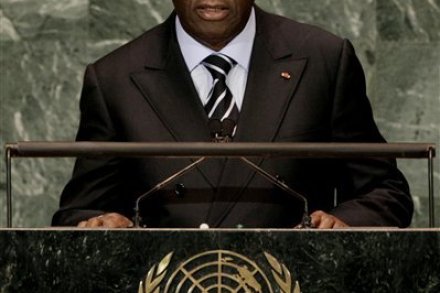Gaddafi's lethal sort of madness
If Muammar al-Gaddafi weren’t still in charge of a country, then his speech for Libyan State TV would have been straight-up hilarious. There he was, all spittle-flecked bombast, rattling on and on about the “bunch of rats and cats” who are trying to depose him, and blaming their actions on, erm, hallucinogenic drugs. “We Libyans have resisted the US and Britain in the past,” he said, “and will not surrender.” He also, predictably, mentioned Israel. It was like some living caricature of a mad dictator. As it is, though, we ought to dwell on some of the more ominous aspects of Gaddafi’s address. He is not standing down, he said












